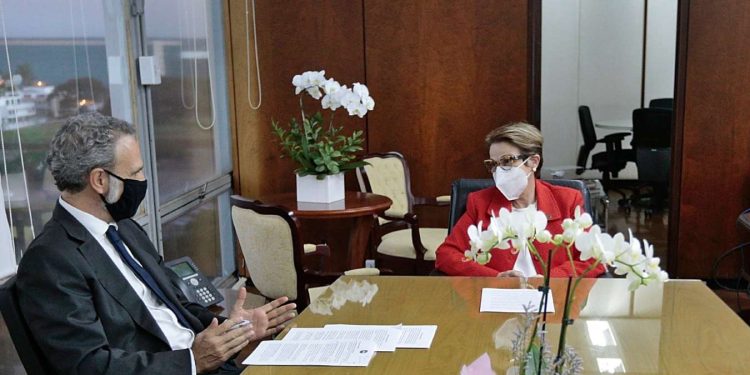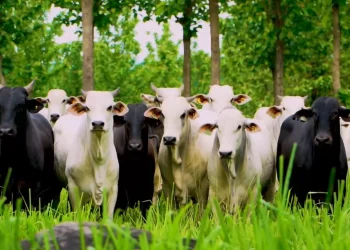The Brazilian Roundtable on Sustainable Livestock (GTPS) published on Thursday (05/20) its public commitment. In the document, presented to the Brazilian Agriculture Minister, Tereza Cristina, GTPS and all its members are committed to the sustainable development of cattle ranching, through the chain articulation, the dissemination of information and support for continuous improvement, pursuing a balance among the economic, social and environmental pillars.
Composed by representatives of six sectors of the suply chain: producers, inputs and services, industries, retails and restaurants, financial institutions and civil society, GTPS highlights the importance of the public authorities strengthening the supervision and combating illegal deforestation and implementing environmental and land regularization measures, more specifically the Brazilian Forest Code.
“The effective implementation of these laws is essential for Brazil to be recognized for conservation in both public and private areas, while enabling food production to meet the growing demand, national and international. Unfortunately, this delay has been very detrimental to the Brazilian agricultural sector”, comments the GTPS president, Caio Penido.
The executive also talks about the importance of landed and environmental regulation and payment for environmental services (PSA) for producers, with the aim of bringing legal certainty to the sector and contributes to the construction of both environmental and carbon services.
“Whoever deforested illegally needs to be punished by law and then seek regularization. Those who have the legal right should not be excluded from the market but can choose not to deforest legally if there is a financial consideration that repays the environmental services provided”, ends Penido.
Also on illegal deforestation, the document categorically states that the Group strongly rejects the practice, as well as land grabbing, slave and child labor, and the invasion of indigenous areas, conservation units and parks.
Another important aspect of the public commitment deals with the incentive to sustainable intensification and improvement of degraded pastures, promoting the efficient use of resources, integration with other crops (Integrated Crop-Livestock-Forestry Systems- ILCF) and reduction of the slaughter age, resulting in the improvement of the carbon balance on the production chain. Greenhouse gas emissions theme have been discussed in the working groups conducted by the GTPS.
In addition, the document reinforces the need for the GIPS (Indicators Guide on Sustainable Cattle Ranching), a tool that provides guidance to assist in the assessment of the level of sustainability of the property and that should be adopted by the chain.
At the end of the public commitment, GTPS ratifies the involvement of all categories of the livestock value chain in the search for efficient and integrated solutions to the challenges faced by the activity in Brazil, understanding that the exclusion of actors should be seen as the last applicable alternative.










